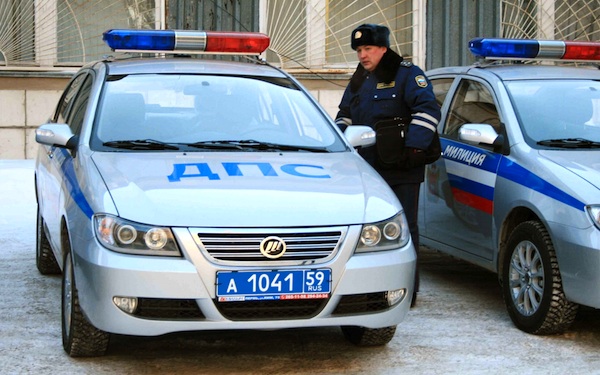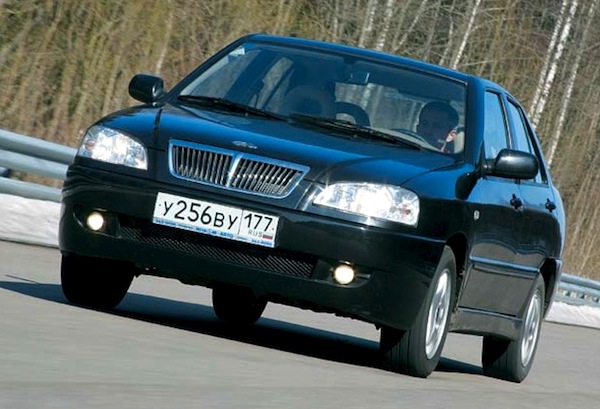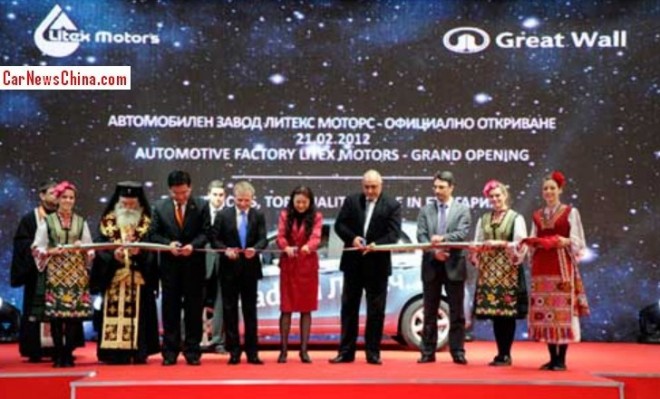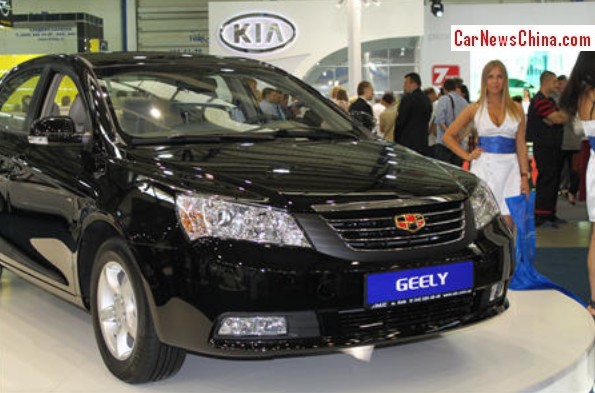Strategy: How the Chinese are setting themselves up for success (Part 3: Eastern Europe)
TagAz has been manufacturing the Chery Tiggo in Russia – rebranded Vortex Tingo.
As illustrated in Africa and Latin America, Chinese manufacturers have been working extra-hard under the radar to secure less developed markets that will form the bulk of global car sales growth over the next couple of decades. Their approach to Eastern Europe is very similar. There are currently three Chinese assembling hubs in the region – in Russia, Ukraine and Bulgaria – acting as a very convenient springboard for further expansion throughout the continent, including all the ex-USSR nations and potentially Western Europe in the longer-term.

Police Lifan Solano in Moscow, Russia
Even though their market share is limited to just under 4% for now, Russia is currently the overseas country delivering the largest volume for Chinese manufacturers, and even become the first overseas country to buy more than 100,000 Chinese passenger cars annually with 102,389 sales in 2013. That’s up a whopping 23% on 2012 in a market down 5%. Import tariffs are too high to allow sizeable direct imports from China, so the 4 main Chinese carmakers present here have already all invested very significantly to assemble locally and as a result are registering extremely strong growth rates in 2013: Lifan is up 34% to #24, Geely up 55% to #25, Great Wall up 39% to #28 while Chery is slower at +4% and #29.

The Chery Amulet was one of the first successful Chinese models in the region.
Chery has the longest (and most troubled) history in Russia: the Chery Amulet ranked within the monthly Top 20 as early as 2007 but the brand saw sales plummet on the back of poor quality perception, to which Chery responded by rebranding their cars Vortex. Since last year though, the Chery brand is back in Russia with encouraging success. Model-wise, the Great Wall Hover is the best-selling Chinese vehicle in Russia in 2013, up 37% to #41, followed by the Lifan X60 (#42), Geely Emgrand (#46), Geely MK/MK Cross (#54), Lifan Solano (#67) and Chery Tiggo (#93).

The Geely CK has managed to top the Ukrainian models ranking 3 times already.
Although Russia does not qualify as a “less developed” market, its structure heavily weighted towards low-cost models like the Lada range and Renault-branded Dacias make it one of the biggest opportunities for Chinese manufacturers worldwide. However in Eastern Europe too, it’s in the developing car markets that we see the Chinese grab their highest market share. Ukraine is the only market in the world with regular available sales data outside China to have repeatedly crowned a Chinese model in the monthly rankings. The Geely CK ranked #1 there in July 2012, December 2012 and January 2013 and finished 2013 in third position.

The Geely SC7 will be assembled in Belarus later in 2013
But the CK is not a one trick pony: Geely was simply the most popular brand in Ukraine in January 2014 with 12.7% market share above Toyota (11.4%)! The Geely Emgrand EC7 peaked at #2 in September 2013, the MK-2/Cross was #15 in March 2013 and the MK was #19 last September 2012. All in all Chinese carmakers currently command around 10% of the Ukrainian car market.

Chery sells the Fulwin 2 as the ZAZ Forza in Ukraine
Other Chinese actors in Ukraine include Chery, 25th brand in 2013, BYD up 144% to #27 Great Wall at #32 and MG at #34, placing the MG 350 at #77 in April 2013. Another example of Chinese manufacturers immersing themselves in the local culture, Chery manufactures at the local ZAZ plant from CKD kits and sells the Chery Fulwin 2 as the ZAZ Forza which ranked among the Ukrainian Top 10 from May to August 2012.

Bulgarian police has already adopted the Great Wall Voleex C10
Another milestone event for Chinese manufacturers in Eastern Europe was the opening of the Great Wall factory in Lovech, Bulgaria, in February 2012. This is the very first automotive plant set up in Bulgaria and as a result Great Wall has played the ‘made in Bulgaria’ card to the fullest since, with great results: it was #10 brand in the country over the first 6 months of 2012 and quickly went up to #2 overall with 10.5% share below just Volkswagen in October and December 2012, placing the Steed pick-up in pole position that same month, the Voleex C10 at #2 in April 2013 and the Hover at #6 in December 2012. 2013 was a little more discreet however for Great Wall in Bulgaria as a whole.

Another milestone event for Chinese manufacturers in Eastern Europe was the opening of the Great Wall factory in Lovech, Bulgaria, in February 2012. This is the very first automotive plant set up in Bulgaria and as a result Great Wall has played the ‘made in Bulgaria’ card to the fullest since, with great results: it was #10 brand in the country over the first 6 months of 2012 and quickly went up to #2 overall with 10.5% share below just Volkswagen in October and December 2012, placing the Steed pick-up in pole position that same month, the Voleex C10 at #2 in April 2013 and the Hover at #6 in December 2012. 2013 was a little more discreet however for Great Wall in Bulgaria as a whole.
Great Wall’s Bulgarian hub is planned as the focal point for their expansion throughout Europe, and Bulgarian exports have already started to trickle down in sales stats for countries like Macedonia where in December 2012 Great Wall was the #10 brand with 4.7% share and the Voleex C10 was #5 model at 3% share. This expansion will likely reach more neighbouring markets in the near future, once again the less mature ones like Serbia (where Chery ranked #25 in 2012), Bosnia, Kosovo, Montenegro and potentially Albania and Moldova.

Geely in Belarus
A fourth Chinese assembly hub in the region kick started in 2013 in Belarus, where Geely has set up a joint venture with Belarusian company BelDzhi and is has launched the locally assembled SC7, ranking 19th overall in 2013 with 1.2% of the market and pushing Geely up to #18 brand with 1.5% share for its first year in market. The assembly facilities, located in Zhodino and Borisov, are scheduled to produce 60,000 cars/year for the first three years, with capacity potentially doubling in 2017. From that 4th hub, exports towards Russia and Kazakhstan are on the cards.
Launching from their 4 hubs in Russia, Ukraine, Bulgaria and Belarus, Chinese carmakers are getting ready to expand further in Eastern and Western Europe in the very near future. Russia will remain by far their biggest opportunity in the region with local assembly plants already in place and ready to gear up to surf on the growing demand for affordable cars in that market.
Matt Gasnier, based in Sydney, Australia, runs a blog named Best Selling Cars, dedicated to counting cars all over the world.
Recommended:

